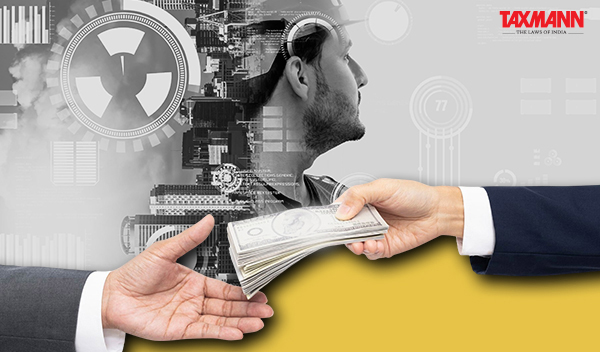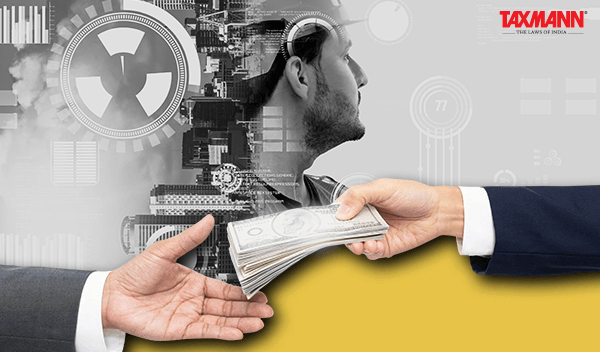
D.C. Agrawal. – [2025] 178 taxmann.com 478 (Article)
1. Introduction
The taxation of payments for software licenses has been a contentious issue in international taxation, particularly in the era of digital transformation where software is predominantly delivered through cloud-based platforms rather than physical mediums. India has witnessed extensive litigation on whether such payments constitute “royalty” under domestic tax law and Double Taxation Avoidance Agreements (DTAAs). The classification is significant because if a payment is categorized as royalty, it becomes taxable in India even in the absence of a Permanent Establishment (PE). This issue has been further complicated by differing interpretations of End-User License Agreements (EULAs), with Revenue authorities often alleging that such agreements confer rights akin to copyright.
The Supreme Court’s landmark judgment in Engineering Analysis Centre of Excellence Pvt. Ltd. v. CIT [2021] 125 taxmann.com 42/281 Taxman 19/432 ITR 471 provided much-needed clarity, holding that payments for off-the-shelf software licenses without transfer of copyright are not taxable as royalty. However, despite this ruling, disputes continue to arise, as illustrated in the case of Dy. CIT (IT) v. Trans Union LLC [2025] 177 taxmann.com 679 (Mumbai – Trib.). In this case, the Tribunal was called upon to decide whether payments made by Indian customers to a U.S.-based company for platform-based software were taxable as royalty under Section 9(1)(vi) of the Income-tax Act and Article 12(3) of the India-USA DTAA, or whether they were simply business profits taxable only in the U.S. This decision is a crucial reaffirmation of the Supreme Court’s principles in the digital economy context.
2. Issue Before the Tribunal
The core issue before the Mumbai Income Tax Appellate Tribunal (ITAT) was to determine whether the receipts earned by the assessee, a U.S.-based company, from providing software licenses and related services to its Indian customers were taxable as ‘royalty’. The Revenue sought to bring these amounts under the ambit of Section 9(1)(vi) of the Income-tax Act, 1961, which defines royalty for domestic law purposes, and Article 12(3) of the India-USA Double Taxation Avoidance Agreement (DTAA), which provides specific guidance on the taxation of royalties between the two countries.
The decision hinged on whether the End-User License Agreements (EULAs) executed by the assessee involved merely granting limited user rights to Indian customers or whether they conferred copyright ownership or rights akin to copyright, which would make the payments taxable as royalties.
This issue is significant because classification as royalty would lead to taxation of such payments in India, whereas, if treated as mere business profits without a Permanent Establishment (PE), they would remain taxable only in the United States under the DTAA.
3. Facts Relating to the Issues
The assessee, Trans Union LLC, is a corporate entity incorporated in the United States and a tax resident of that country. It is part of a well-known international group engaged in the business of providing credit information and information management services, offering data, insights, and technology tools to help businesses and consumers make informed financial decisions.
During the relevant assessment years (2020-21 to 2022-23), the assessee supplied licenses for three software platforms – iCRS Platform, Adviser Platform, and Decision Center Platform – to its Indian customers, including Trans Union CIBIL, its Indian affiliate. These licenses enabled customers to access and use the software for their internal business purposes but strictly prohibited access to the source code, sublicensing, reverse engineering, or reproduction of the software.
Initially, uncertain about the evolving legal position regarding taxation of software payments, the assessee offered these receipts to tax in its returns. However, during assessment proceedings, it revised its claim based on the landmark ruling of the Supreme Court in Engineering Analysis Centre of Excellence Pvt. Ltd’s. case (supra), which held that payments for standard software licenses without transfer of copyright are not taxable as royalties.
The Assessing Officer (AO) rejected this claim and proceeded to tax the receipts as royalties under both domestic law and the DTAA. He asserted that the facts of the case were different from those considered by the Supreme Court and emphasized that a review petition had been filed against the SC ruling, implying that it had not achieved finality.
4. Arguments of the Appellant (Revenue)
The Revenue, appealing against the CIT(A)’s favorable order for the assessee, presented multiple arguments:
(i) Grant of Copyright-like Rights: The Revenue contended that the assessee had granted Indian customers rights beyond mere usage. Specifically, it claimed that the customers had been given modification and adaptation rights, which amounted to a transfer of rights under Section 14(a) and Section 14(b) of the Indian Copyright Act, 1957. Such rights are characteristic of a copyright transfer, and therefore, the payments should be treated as royalty.
(ii) Related-Party Agreements: The Revenue argued that the agreements between the assessee and its Indian affiliate, Trans Union CIBIL, were related-party transactions, and thus could not be taken at face value. According to the Revenue, these agreements were structured to deliberately avoid Indian taxation and therefore required strict scrutiny.
(iii) Scope of Supreme Court Ruling: It was further argued that the Engineering Analysis ruling applied only to traditional software distributed through physical mediums such as CDs or hardware devices. The assessee’s arrangements, which involved platform-based and cloud-delivered software, were fundamentally different and fell outside the scope of the SC judgment.
(iv) Pending Review Petition: The AO also highlighted that a review petition had been filed by the Revenue before the Supreme Court challenging the Engineering Analysis decision. Therefore, he claimed that the issue had not reached finality, and until such time, the receipts should be taxed conservatively as royalty in India
5. Arguments of the Respondent (Assessee)
The assessee refuted the Revenue’s contentions comprehensively and presented the following arguments:
(i) Squarely Covered by Supreme Court Judgment: The assessee maintained that its case fell squarely within Category 1 identified in the Engineering Analysis judgment, which deals with situations where computer software is directly purchased by an Indian end-user from a foreign supplier without any transfer of copyright. Under this category, payments are not taxable as royalties under either domestic law or the DTAA.
(ii) Restrictions in EULA: The assessee emphasized that its EULAs clearly restricted Indian customers to mere usage rights:
i. Customers were explicitly prohibited from copying, sublicensing, transferring, reverse-engineering, or reproducing the software.
ii. Access to the source code was strictly denied, ensuring that customers could not independently modify or exploit the software.
iii. The agreements clarified that no copyright, trade secret, or other proprietary rights were transferred to the customers.
(iii) Temporary Copies Do Not Create Royalty: The assessee relied on Section 52 of the Indian Copyright Act, which allows a lawful possessor of software to make temporary backup copies for internal use. Such activities do not constitute copyright infringement and, therefore, do not imply a copyright transfer.
(iv) Modification Rights Retained by Licensor: It was clarified that any modification to the software could only be performed by the assessee (licensor). Customers could request modifications, but they could not make changes themselves. Thus, there was no transfer of copyright.
(v) Treaty Protection under India-USA DTAA: Since the assessee was a U.S. tax resident, it was entitled to invoke the beneficial provisions of Article 12(3) of the India-USA DTAA, which provides that payments are taxable as royalties only if there is a transfer of copyright. In the absence of such transfer, the receipts could not be taxed in India
Click Here To Read The Full Article
The post [Opinion] Software License Payments Taxation In India appeared first on Taxmann Blog.
